جورج واشنگتن کارور
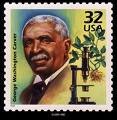
George Washington Carver
George Washington Carver is possibly the most famous agricultural scientist of all time. He invented hundreds of products that could be made from crops such as peanuts and sweet potatoes, and he changed the methods of farming in the southern United States. The story of George Washington Carver’s life is interesting and inspiring, as it shows how some people can achieve success despite adversity.
George Washington Carver was born in a small town in the American state of Missouri, in 1864 or 1865. He was named after the first President of the United States. George’s parents were slaves. His father was killed in an accident, and his mother was kidnapped and later died. George and his brother were raised by a married couple, the Carvers, who had owned George’s mother.
George was often sick during his childhood, but he showed an intense interest in nature. The Carvers taught George to read and write, and he became known locally as an expert on plants. Later, the Carvers sent George to a school for African-American children in a nearby town. After his graduation, George Washington Carver continued his education in the state of Iowa.
While a student in Iowa, Carver had very little money and had to work at many jobs to afford the costs of his education. However, his knowledge of plants was very impressive, and after receiving his Master’s degree, he became a teacher at the college he had attended as a student.
Soon, however, Carver moved south to the state of Alabama, where he worked as a teacher and researcher at a college for African-American students. It was here that Carver stayed for the rest of his life, and it was here that he performed his important agricultural research.
One problem for farmers in the southern United States was that the most widespread crops, cotton and tobacco, tended to remove nutrients from the soil. Carver realized that this problem could be solved, to some extent, by “rotating” the cotton and tobacco crops with other kinds of crops, such as peanuts and sweet potatoes, which could help to preserve the nutrients in the soil.
Carver’s discoveries made the peanut, the sweet potato, and the soybean very useful to southern farmers. He invented the food product known as peanut butter, plus hundreds of other products. For example, Carver found ways to produce plastics, ink, cooking oil, paints, and cosmetics from peanuts and other crops. Carver also developed a new variety of cotton.
Carver received many awards for his scientific research, but he was never interested in fame or fortune. When Carver died, in 1943, the American government made his birthplace a national monument. Today, Carver is still known as a great agricultural scientist.
inspiring:
giving people a feeling of excitement and a desire to do something great
ᅳopposite uninspiring
inspiring music
King was a great orator and an inspiring leader.
despite:
used to say that something happens or is true even though something else might have prevented it
ᅳsynonym in spite of
Despite all our efforts to save the school, the authorities decided to close it.
despite the fact (that)
She went to Spain despite the fact that her doctor had told her to rest.
adversity:

a situation in which you have a lot of problems that seem to be caused by bad luck
his courage in the face of adversity
a friend is he who helps his friend/in adversity and helplessness
adversity became extreme
they continued to struggle in the face of adversity
intense:
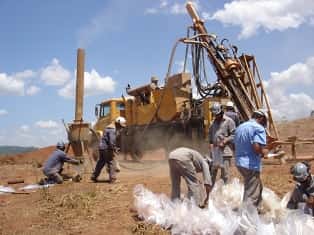
intense activity is very serious, uses a lot of effort, and often involves doing a great deal in a very short time
The job demands intense concentration.
At least 3000 people were killed in a week of intense fighting.
widespread:
existing or happening in many places or situations, or among many people
the widespread use of chemicals in agriculture
widespread support/acceptance/criticism/condemnation etc
There was widespread support for the war.
The storm caused widespread damage.
the use of this drug is very widespread in Africa
one of the most widespread diseases
nutrient:
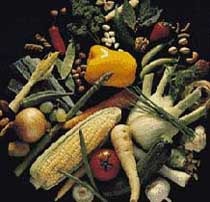
a chemical or food that provides what is needed for plants or animals to live and grow
The plant absorbs nutrients from the soil.
rotating:
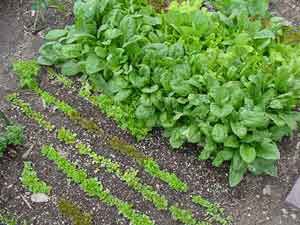
technical to regularly change the crops grown on a piece of land, in order to preserve the quality of the soil
preserve:

to save something or someone from being harmed or destroyed
ᅳsee also preservation
We must encourage the planting of new trees and preserve our existing woodlands.
soya bean
British English soy‧bean /ˈsɔɪbiːn/ American English [countable]
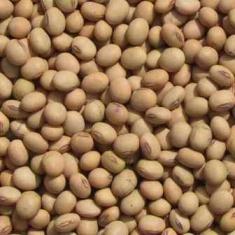
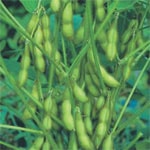
the bean of an Asian plant from which oil and food containing a lot of protein is produced
cosmetics:

creams, powders etc that you use on your face and body in order to look more attractive
ᅳsee also make-up
a range of cosmetics and toiletries
fame:

the state of being known about by a lot of people because of your achievements
win/achieve/gain/find fame
Streisand won fame as a singer before she became an actress.
rise/shoot to fame
Plant shot to fame in the seventies as the lead singer of Led Zeppelin.
international/worldwide/national fame At that time, the Beatles were at the height of their fame .
The town’s only claim to fame (=the only reason why it is well known) is that Queen Elizabeth I once visited it.
He set off to find fame and fortune .
of … fame
(=used to show what someone is famous for) Hugh Grant, of ‘Notting Hill’ fame
fortune:

▶CHANCE◀
[uncountable] chance or luck, and the effect that it has on your life
I had the good fortune to work with a brilliant head of department.
Sickness or ill fortune could reduce you to a needy situation.
I felt it was useless to struggle against fortune.
birthplace:

1
the place where someone was born, used especially when talking about someone famous
Stratford-upon-Avon was Shakespeare’s birthplace.
2
the place where something first started to happen or exist
New Orleans is the birthplace of jazz.
monument:؟
فهرست درس های سطح 3
این متن در تاریخ 27 دی 1398 توسط مشاور سلام زبان ویرایش شد.